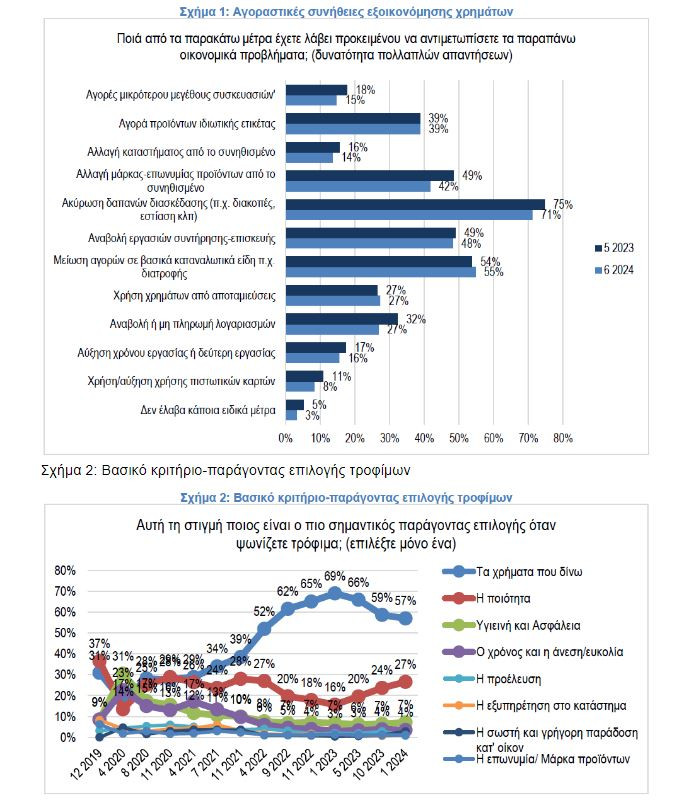One in 3 states that they will take a vacation, but a more limited one, while 6 in 10 consumers state that their spending this year will be reduced compared to last year
Only 1 in 2 will go on vacation in the summer of 2024 due to increased costs in tickets and accommodation, reveals the latest research by the Consumer Goods Retail Research Institute (IELKA), on the effect of price increases on the consumption habits of Greeks.
THE necessary cut in spending by households is also depicted in figure 3, where 1 in 2 consumers say they will not take a vacation in 2024, while 1 in 3 states that they will take a vacation, but a more limited one. 6 out of 10 consumers state that their spending this year will be reduced compared to last year, while 4 out of 10 that it will be reduced by more than 50%. The main reasons are either the reduced disposable income due to price increases, but mainly the increased costs in tickets (50%) and accommodation (48%).
Figure 3: Estimates for 2024 holidays
In particular, as it turns out, there have been significant changes recently in consumption habits in various behavioral areas, which are largely attributed to product and service price increases.
First of all, there is a clear tendency of consumers to save money for the purchase of basic goods and services and secondarily for money management. It seems that the pressure to reduce spending on basic services and less on basic goods is greater. Specifically:
- 71% (against 75% in 2023) of the public declare that they have canceled entertainment expenses such as dining, vacations, travel, etc.
- 55% (vs. 54% in 2023) say they have cut back on food and grocery shopping overall.
- 49% (vs. 48% in 2023) of the public say they have postponed maintenance and repair work, e.g. at home or in the car.
- 42% (versus 49% in 2024) state that they have changed product brands.
- 27% state that they have used money from their savings to cover their purchases.
- 27% (against 32% in 2024) have postponed paying bills or stopped paying their obligations.
- 16% (versus 17% in 2024) say they have increased their working hours or found a second job in order to increase their income.
Just 3% of the public say they have taken no action at all to address inflationary pressures.
Figure 1: Money-saving shopping habits
How intense is the shift of the buying public to saving money is reflected in figure 2. The figure records over time the factors that influence consumers in the last 4 years in relation to the choice of food. Money expenditure remains the main criterion (57%), but especially in the latest measurements the intensity is decreasing (from 69% in 2023) and we are at the levels of 2022. At the same time, quality is the main criterion for 27% of consumers, but it is increasing from 16% in 2023. So in the last year a gradual de-escalation has been recorded with the “scissors” between the two basic criteria closing.
Source: Skai
I am Janice Wiggins, and I am an author at News Bulletin 247, and I mostly cover economy news. I have a lot of experience in this field, and I know how to get the information that people need. I am a very reliable source, and I always make sure that my readers can trust me.











